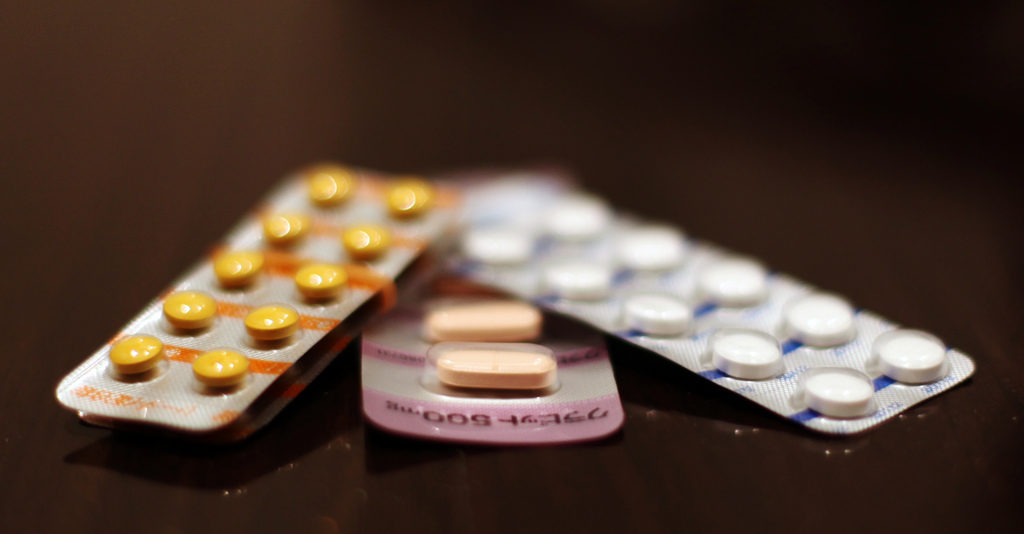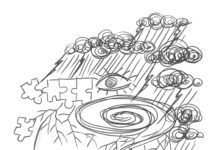A new study published in Pain found that individuals being treated with open-label placebos showed significant reductions in pain and disability, even when compared to individuals receiving treatment as usual. The authors of the study – which is the first to show potentially clinically significant benefits of open-labels placebos for this type of condition – make an argument for innovative treatments, which include this ethical, rather than deceptive, distribution of placebos.

“Recent studies have demonstrated that some commonly prescribed front-line therapies for LBP are actually not superior to placebo controls in double-blind randomized clinical trials (RCTs) or are of only marginal increased efficacy.”
The prevalence of chronic pain in the U.S. is increasing, with upwards of 25 million individuals reporting experiencing some form of it. Lower back pain, specifically, “causes more disability than any other medical condition worldwide”, the authors write. Despite warnings against it, clinicians still often prescribe opioids for pain, which can be highly problematic.
Additionally, anxiety, depression, and stress can influence pain severity; therefore antidepressants are also often prescribed, although benefits for reduction of lower back pain are unproven and side effects can be high. Further, in prior randomized control trials, other commonly prescribed medications have not been found to be superior to placebo, leaving researchers and providers in need of innovative treatments.
Placebos, in fact, have been shown to have benefits, although most studies regarding these were blinded (i.e. individuals did not know they were taking placebos). However, placebo administration presents what the authors call an “ethical conundrum” to physicians who do not want to deceive patients. Although some studies have already found benefits in open-label placebo prescriptions (i.e. administrating placebos honestly), these studies have been fairly small.
For this study, which was conducted in Portugal, the researchers aimed to understand if adding an open-label placebo treatment to treatment as usual could benefit patients with chronic lower back pain. For this, the researchers recruited 83 adults who completed a 3-week randomized clinical trial comparing a group receiving their current treatment plus open-label placebo (OLP) to a group just receiving current treatment, also known as treatment as usual (TAU).
Receiving OLP along with TAU resulted in significantly greater reductions in pain and disability. “The amount of additional pain reduction produced by OLP was approximately 30% of baseline pain and disability ratings,” the researchers write. In addition, participants in the TAU group were offered the opportunity to receive OLP at the conclusion of the main study, for which 30 individuals signed up. These participants also showed significant pain relief and a decrease of back pain-related disability.
Regardless of limitations, such as a small sample size and a short trial duration, the researchers present an alternative with almost no adverse events and without the negative side effects often produced by opioids and antidepressants. More notably, they demonstrate that ethical, honest prescribing of placebos can be effective. Their findings present new possibilities for the treatment of not just lower back pain, but other chronic pain conditions.
****
Carvalho, C., Caetano, J. M., Cunha, L., Rebouta, P., Kaptchuk, T. J., & Kirsch, I. (2016). Open-label placebo treatment in chronic low back pain: A randomized controlled trial. Pain, 1-7. (Abstract)















I have also come across a meta analyses according to which active drugs and placebos have similar effect sizes (see: http://journals.plos.org/plosone/article?id=10.1371/journal.pone.0062599).
Report comment
The idea of an “ethical conundrum” to physicians because they do not want to deceive patients, is a load of rubbish. The problem is that the medical industry insists that the body is a machine, so to fit this paradigm they must consider the sugar or flour pills as having a healing effect. They know full well that this is NOT true.
The sugar/flour pill is only an anchor for an idea, the idea that the patient will get well. The reason the patient gets well has to do with a belief and not the anchor of that belief. This however opens the Pandor’s box; That being that the body is purpose-driven and not a machine. Ideas and beliefs are instrumental both in healing (placebo) and in disease (nocebo).
They have to admit that the treatment given is an idea given by an authority figure, a doctor. Thus the patient takes the pills believing they the problems they face in the body, the adverse bodily reactivity will be resolved. They stop reacting. This means they relax and thus their body returns to resting metabolism and health.
They have chosen to use Latin words for placebo meaning “to please” and nocebo “I will to harm”. This is the real deception. The real conditions have nothing to do with pleasing or harming.
Nocebo has to do with a perception of some harmful conditions and hence adverse reactions to that perception.
Placebo has to do with relaxing confident that their bodily reactivity will cease and they will regain rest.
They give an “open label” placebo meaning what? Do they tell the patient that as well as the treatment we are going to give you in the form of pharmaceutical drugs or a medical procedure, we are going to give you some sugar pills that have no pharmaceutical effect? I doubt it. I think they give the patient more pills that the patient sees as more treatment.
Report comment
I also think getting a psychiatric label (a fancy name merely based on a checklist) and being told that these are “long-term conditions” – will trigger nocebo effects (opposite of placebo effects) in people.
Report comment
Yes a psychiatric label will hurt the person and create a nocebo effect. Partly it is because the label is used, by some people, against the person labeled. The person becomes isolated, not treated seriously and sometime ridiculed and it is hard for anyone to not react to these conditions.
The label can also be made in clear cut cases where there is no question of any mental disorder (not that there ever is such a thing). For example many children, who are bullied at school and who as a result will naturall become anxious, are labeled as having anxiety disorder. And of course the motive is money. By drugging them the pharmaceutical company makes money and the psychiatrists gets kick backs.
Children, who are started at school below the age of 5 years, will become bored and restless. These kids are labeled by the teachers as ADHD and the parents advised that they have to have their children medicated.
It is not only the label that creates a nocebo effect but also the medication that become mandatory in some cases. The drugs can do horrible damage.
Report comment